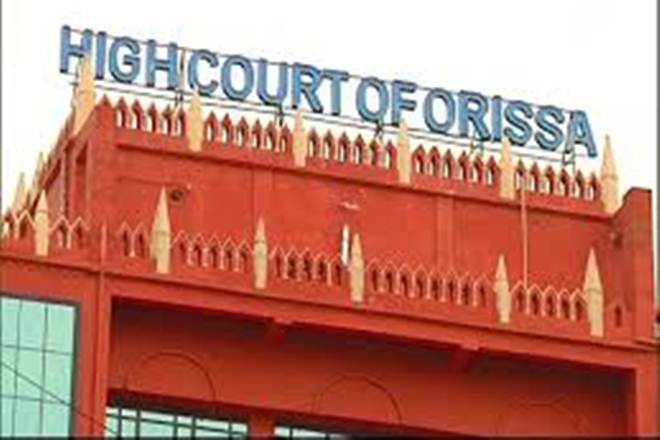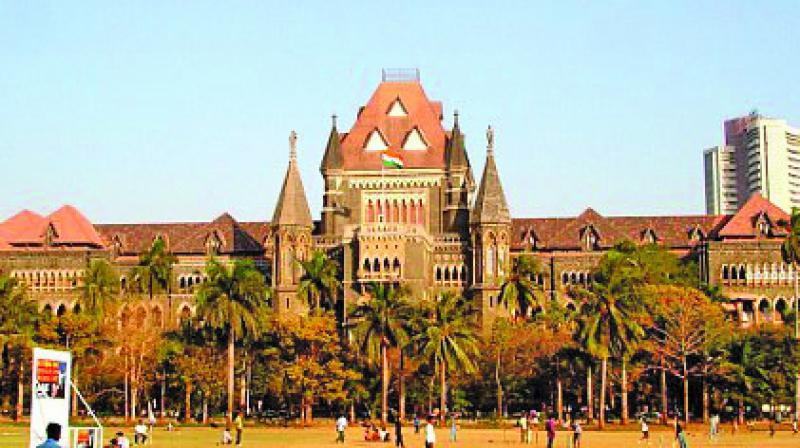1. The plaintiffrespondent filed the suit for recovery of sum of Rs. 9255.47 with interest @ 6 % per annum. The suit was decreed by both the Courts below and hence the appeal.
2. The plaintiff was a Private Limited Company having Regional Office at Guwahati and acted as a sole selling agent of fans etc. manufactured by M/S Jay Engineering Works Limited of Calcutta. The defendant was the proprietor of M/S H. ii. Electric Stores at Fancy Bazar. There is no dispute that the defendant used to purchase goods from the plaintiff on credit from time to time. According to the plaintiff in the year of 1963 and 1964 the defendant purchased goods from the plaintiff amounting to Fs. 46,021.99 p. on credit. Plaintiff issued challans for the sales and also submitted bills on the basis of the challans and defendant made payments of different dates and also returned some articles. As the defendant did not pay a sum of I.s. 9,25547 p. in spite of demand the suit was filed.
3. According to the defendant he cid not purchase goods covered by challan No. 4374 dated 28.2.63 amounting to Rs. 12,536.25 p. Defendant has alleged that tie plaintiff has forged both the challan and the corresponding bill. According to the defendant he took goods worth Rs. 33,485.50 p. and he paid Rs. 21,173.51 n. and returned articles worth Rs. 13,616.06 p. He also supplied one fan to one Basanta Das on the request of the plaintiff and has also alleged that he gave another fan for repairing to the plaintiff but it was not returned. According to the defendant he made an excess payment of Rs. 2,04 .94 p. and that apart he was also entitled to get a commission of Rs. 973.47 p. but no counter claim was filed before the learned trial Court.
4. During trial plaintiff examined (he Accountant of the Gauhati Office, P. W. I and defendant deposed himself. On behalf of the plaintiff many documents were produced and exhibited. Exs. 3 d 4 are the ledgers, Exs 5 is the stock book, Exs. 6 & 7 are the challans and Exs. 8 to 11 are corresponding bills. Exs. 11 to 14 are also bills and Exs. 15, 16 and 17 are corresponding challans, but these documents are not relevant for our purpose, as these relates to subsequent transaction. The 1arned Court below on the basis of these documents decreed the suit. It may be stated that P. "V. I has proved all these documents and in cross examination he has categorically stated that he does not know who prepared the above documents, particularly Exs. 1 to 14 and also 15, 16 & 17.
5. First point urged by Dr. Sarma is that as these documents have not been duly proved as required under the Evidence Act, the impugned judgment is bad in law, inasmuch as, it is based on inadmissible evidence. In this connection Dr. Sarma has drawn my attention to section 67 of the Evidence Act which, inter alia, provides that if a document is alleged to be signed or to have been written wholly or in part by any person, the signature or the hand writing of so much of the document as is alleged to be in that person''s hand writing must be proved to be in his band writing. In this connection Dr. Sarma has placed reliance in H. V. lyenger vs. B. N. Thimmajamma, AIR 1959 SC 443. In that their Lordships held that under section 67 if a document is alleged to be signed by any person, the signature of the said person must be proved to be in his hand writing, and for proving such hand writing under section 5 and 47 the opinions of experts and/or person acquainted wit i the hand writing of the person concerned are made relevant.
6. A document before exhibited must be proved in accordance with section 67 of the Evidence Act. It can be so done by the writer of the document or by a person acquainted with his hand writing or on the basis of opinion of expert. in the case in hand, the documents, more particularly the ledger, chailan and the bills were not duly proved as P. \\V. I. has clearly stated that he does not know who prepared these documents, and as such as the judgment is based on these documents it is not sustainable in law. Mr. Kalita, learned counsel for respondent has urged that from the above statement made by P.W.I in his crossexamination it can be concluded that he did not know the hand writing of the writer. It may be mentioned that in spite of all efforts the original records could not be produced at the time of hearing as it is not traceable in the Courts below. The copies of the evidence obtained by the learned counsel from the Court below have been produced before this Court. According to Mr. Kalita, these copies may not reflect the correct position. It may be stated that this second appeal is pending since 1980 and as the original record is not available 110 purpose will be served by keeping this case pending. On perusal of the judgments of the learned Court below I do not find any evidence to show that these documents were proved as required under the law.
7. Dr. Sarma has drawn my attention to section 34 of the Evidence Act and has urged that the impugned judgment is bad in law as it was passed only on the basis of entries in the books of account and no independent witness was examined in support of the transaction. On the other hand Mr. Kalita, learned counsel for the respondent has urged that apart from the ledger and the bill book there are other documents and these documents are sufficient to support the case of the plaintiff.
8 Section ?4 of the Evidence Act provides that entries of books of accounts, regularly kept in the course of business are relevant, whenever they refer to a matter into which the Court has to enquire but such statement shall not alone be sufficient evidence to charge any person with liability.
9. The Apex Court in Chandradhar Goswami & others vs. Gauhati Bank Ltd., AIR 1976 SC 1058 held that from a bare perusal of section ?4 it is clear that no person can be charged with liability merely on the basis of entries in books of accounts, even when such books of accounts are kept in regular course of business. There has to b; further evidence to prove payment of the money which may appear in books of accounts in order that a person may be charged with liability thereof unless of course the person accept the correctness of the books of accounts. In Ram Janki Devi & another v�. M/S Juggilal Kamlapat, AIR 1971 SC 2551 it was held that such books of accounts may be proved even in absence of the writer en proof of his proper maintaining and keeping and of impossibility of arranging presence of its writer.
10. This Court in Suklal Dev Barman vs. Kala Ram Malakar, AIR 1976 Gauhati 103 held that though statement made by a person in his own favour, whether oral or documentary is normally not admissible in evidence, the entries in the books of accounts if proved to have been regularly kept in due course of business arc admissible under section 34. In D. Agarwalla vs. B. Devi Agarwalla, 1990 (1) GLJ 219 reiterate the law laid down by the Apex Court that entries in the books of accounts regularly kept in course of business are relevant. But such statement shall not alone be sufficient to charge any person with liability and that in absence of the writer, such books of accounts can be held to have been proved if these books are maintained regularly.
11. If books of accounts of a particular business are kept in regular course of business these are supposed to be accurate and there is strongest improbability of untruth of any entries made in such books of accounts. In view of the above position though statement made by a person in his own favour is normally not admissible in evidence, entries in the books of accounts have been made admissible and relevant under section 34 of the Evidence Act. To get benefit of this section 34 it must be proved that the books of accounts were kept in the regular course of business and the books of accounts have to be proved properly. Such books of accounts can be held to be proved even in absence of the writer provided the Court is satisfied that it is impossible to bring the writer of such books of accounts. But merely on the basis of the entries of books of account which are kept in regular course of business, a person is not entitled to get a decree unless further evidence is adduced in support of the transaction.
12. In the casein hand except the statement of P. W. 1 no other evidence is available in support of the claim of the plaintiff. I have already held that the books of accounts were not properly proved. That apart, there is no evidence and in fact P. W. 1 has also not stated that these books of accounts were kept in regular course of business. I, therefore, hold that on the basis of the documents produced before the Court the plaintiff is not entitled to get a decree as per law and as such the impugned decree is bad in law.
13. Last contention of Dr. Sarma is that the impugned judgment is hit by Order 41 Rule 31, C.P.C. as the Courts below did not consider fully both oral and documentary evidence. In this connection Dr. Sarma has drawn my attention to two decisions of this CourtAmber AH vs. Nichar AH, AIR 1950 A & N 79 and Fakkar Ali vs. Superintendent of Police, Goalpara, UR 1971 Assam & Nagaland 165. In Ambor Ali (supra) it was held that the judgment of an appellate Court must be self contained, so self contained that the findings of fact can be sustained upon a bare perusal of it and it is not sufficient if it merely states that a particular fac t have been proved nor it is sufficient if it merely states that the oral evidence was not satisfactory on the point. The Court further held, it should produce the material evidence and also state reasons for holding the fact as not proved and the oral evidence unsatisfactory. In Fakkar Ali (supra) this Court held that the first appellate Court being the final Court of facts it is incumbent on it to consider all evidence adduced by the parties.
14. Order 41 Rule 33, C.P.C. inter alia, provides that the judgment of the appellate Court shall state the points for determination, decisions thereon and reasons for the decisions. It is, therefore, incumbent on the learned appellate Court to give reasons for its decision on the points for determination and while doing so, the learned lower appellate Court being the final Court of facts has to consider all the evidence on record. As held by this Court in the above two decisions such judgment must be self contained and the findings of fact can be sustained upon a bare perusal of it. On perusal of the impugned judgment I find that the learned lower appellate Court did not write a self contained judgment giving reasons for its decision after considering all the evidence adduced by the parties. I, therefore, find considerable force in the contention of Dr. Sarma.
15. For what has been stated above, I find merit in the present appeal and it is liable to be allowed, which I hereby do.
In the result, the present appeal is allowed by setting aside the impugned judgment and decree. No costs.

